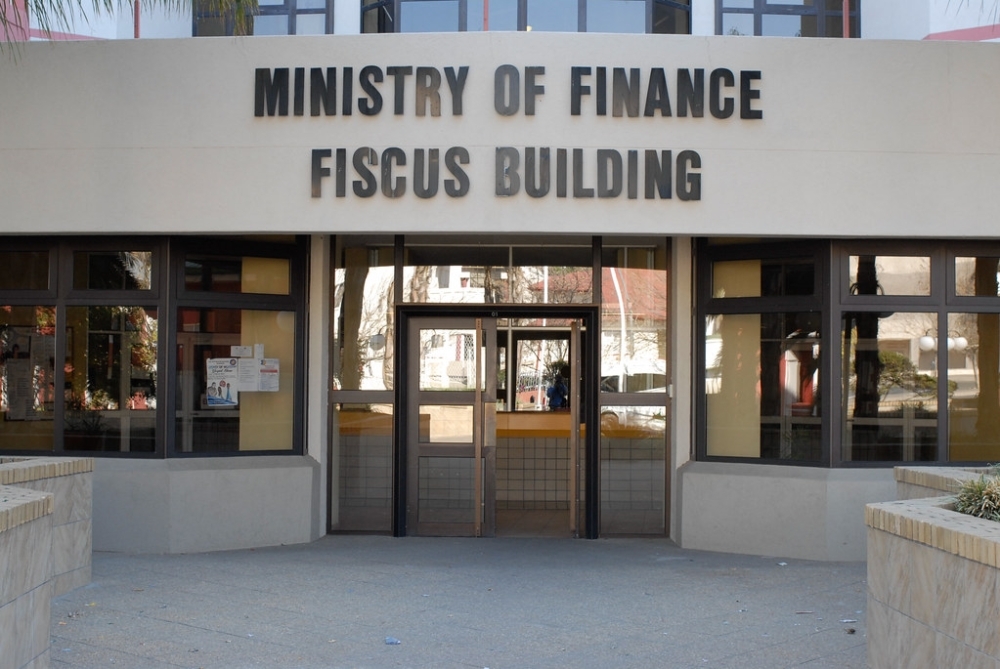Namibia’s unregulated banks: Beyond the watchdog’s sight
• Agribank, NamPost and DBN’s unchecked freedom
Almost a decade after the collapse of the publically-owned SME Bank, financial-industry authorities have parked IMF recommendations aimed at safeguarding the country's public banking sector against poor performance and mismanagement.
Namibia continues to sidestep key International Monetary Fund (IMF) recommendations calling for public banks to be moved from the current self-regulatory regime and instead resort under the supervision of the central bank.
Government said it will not be rushed into deciding on the way forward, adding that should there be a need to change the operations, such changes will be considered only after a thorough assessment has taken place.
The country’s state-owned banks include the Development Bank of Namibia (DBN), Agribank and NamPost savings bank, and are currently not regulated by the Bank of Namibia.
The IMF, however, feels that having the trio under the watchful eye of the central bank will help to improve performance and ensure that public banks deliver on their mandates.
There have also been calls to redefine those mandates to improve the targeting of market failures and leveraging of private capital.
The recommendation is contained in IMF’s March 2018 assessment of Namibia’s financial system, one which government is still undecided about.
We need time
“The government acknowledges the importance of thoroughly reviewing these recommendations in order to assess their feasibility, applicability and sustainability within the legislative framework. It is crucial to emphasise that the government has been actively engaged in the review process, carefully examining each recommendation and its potential impact on our country,” the finance ministry’s spokesperson Wilson Shikoto said when approached for comment on the matter.
He added that it is “paramount that government take the necessary time to evaluate the recommendations thoroughly”.
“The aim is to ensure that any decisions made are well-informed, strategically sound, and align with the long-term interests of our country and its citizens,” he said.
Namibians do not have the best of memories as far as state-owned banks are concerned, especially after the collapse of the SME Bank in 2017 - after more than N$200 million of depositors’ funds were siphoned via financial institutions in South Africa by the bank’s bosses and their cronies.
Apart from liquidators pushing to recover some funds through asset forfeiture, at this stage, no one is facing any jail time for the country’s biggest bank heist ever.
Much of the blame was pinned on poor internal controls and laxed regulatory supervision on the part of the Bank of Namibia.
Despite this, it seems the country’s financial authorities have not learnt their lesson.
Shadow banking
Unregulated banks have also given rise to the shadow-banking system in Namibia.
This broad collection of financial institutions and financial markets offers the same type of services as commercial banks, but does not fall within the regulatory environment traditional banks are subject to.
The financial services industry indirectly regulates itself through little discussed measures that make regulations and sets enforcement policies that directly affect the public.
Critics are, however, of the view that the self-regulatory regime poses constant risk that industry members will subvert its processes to act like a cartel, promoting industry interests at the expense of the public and government’s development objectives.
Rules ignored
A financial analyst who preferred not to be named said public banks run the risk of breaching the country’s financial rules if left unchecked.
“How are the pricing and interest rates regulated for [development finance institutions] to ensure consumer protection?
“Also, you have estate clients accumulating interest at Agribank and the in duplum rule - which provides that interest on a debt will cease to run where the total amount of arrear interest has accrued to an amount equal to the outstanding principal indebtedness - is being totally ignored,” the critic said.
The Bank of Namibia referred Namibian Sun to the ministry of finance when quizzed on the recommendations made by the IMF.
“The function of overseeing and regulating the areas in question falls under the jurisdiction of the ministry of finance and public enterprises and not the Bank of Namibia. Therefore, any questions regarding these matters should be directed to the ministry,” it said.
Government said it will not be rushed into deciding on the way forward, adding that should there be a need to change the operations, such changes will be considered only after a thorough assessment has taken place.
The country’s state-owned banks include the Development Bank of Namibia (DBN), Agribank and NamPost savings bank, and are currently not regulated by the Bank of Namibia.
The IMF, however, feels that having the trio under the watchful eye of the central bank will help to improve performance and ensure that public banks deliver on their mandates.
There have also been calls to redefine those mandates to improve the targeting of market failures and leveraging of private capital.
The recommendation is contained in IMF’s March 2018 assessment of Namibia’s financial system, one which government is still undecided about.
We need time
“The government acknowledges the importance of thoroughly reviewing these recommendations in order to assess their feasibility, applicability and sustainability within the legislative framework. It is crucial to emphasise that the government has been actively engaged in the review process, carefully examining each recommendation and its potential impact on our country,” the finance ministry’s spokesperson Wilson Shikoto said when approached for comment on the matter.
He added that it is “paramount that government take the necessary time to evaluate the recommendations thoroughly”.
“The aim is to ensure that any decisions made are well-informed, strategically sound, and align with the long-term interests of our country and its citizens,” he said.
Namibians do not have the best of memories as far as state-owned banks are concerned, especially after the collapse of the SME Bank in 2017 - after more than N$200 million of depositors’ funds were siphoned via financial institutions in South Africa by the bank’s bosses and their cronies.
Apart from liquidators pushing to recover some funds through asset forfeiture, at this stage, no one is facing any jail time for the country’s biggest bank heist ever.
Much of the blame was pinned on poor internal controls and laxed regulatory supervision on the part of the Bank of Namibia.
Despite this, it seems the country’s financial authorities have not learnt their lesson.
Shadow banking
Unregulated banks have also given rise to the shadow-banking system in Namibia.
This broad collection of financial institutions and financial markets offers the same type of services as commercial banks, but does not fall within the regulatory environment traditional banks are subject to.
The financial services industry indirectly regulates itself through little discussed measures that make regulations and sets enforcement policies that directly affect the public.
Critics are, however, of the view that the self-regulatory regime poses constant risk that industry members will subvert its processes to act like a cartel, promoting industry interests at the expense of the public and government’s development objectives.
Rules ignored
A financial analyst who preferred not to be named said public banks run the risk of breaching the country’s financial rules if left unchecked.
“How are the pricing and interest rates regulated for [development finance institutions] to ensure consumer protection?
“Also, you have estate clients accumulating interest at Agribank and the in duplum rule - which provides that interest on a debt will cease to run where the total amount of arrear interest has accrued to an amount equal to the outstanding principal indebtedness - is being totally ignored,” the critic said.
The Bank of Namibia referred Namibian Sun to the ministry of finance when quizzed on the recommendations made by the IMF.
“The function of overseeing and regulating the areas in question falls under the jurisdiction of the ministry of finance and public enterprises and not the Bank of Namibia. Therefore, any questions regarding these matters should be directed to the ministry,” it said.






Comments
Namibian Sun
No comments have been left on this article